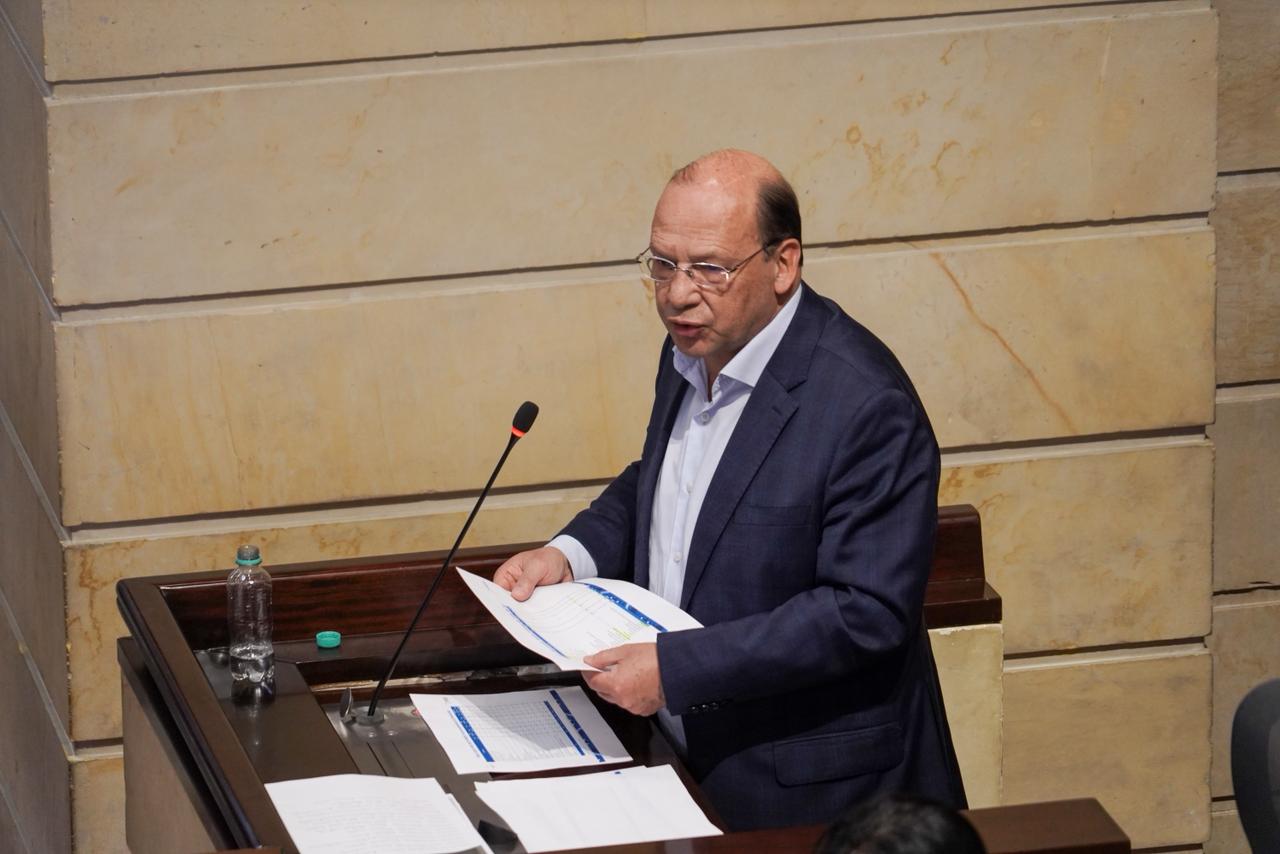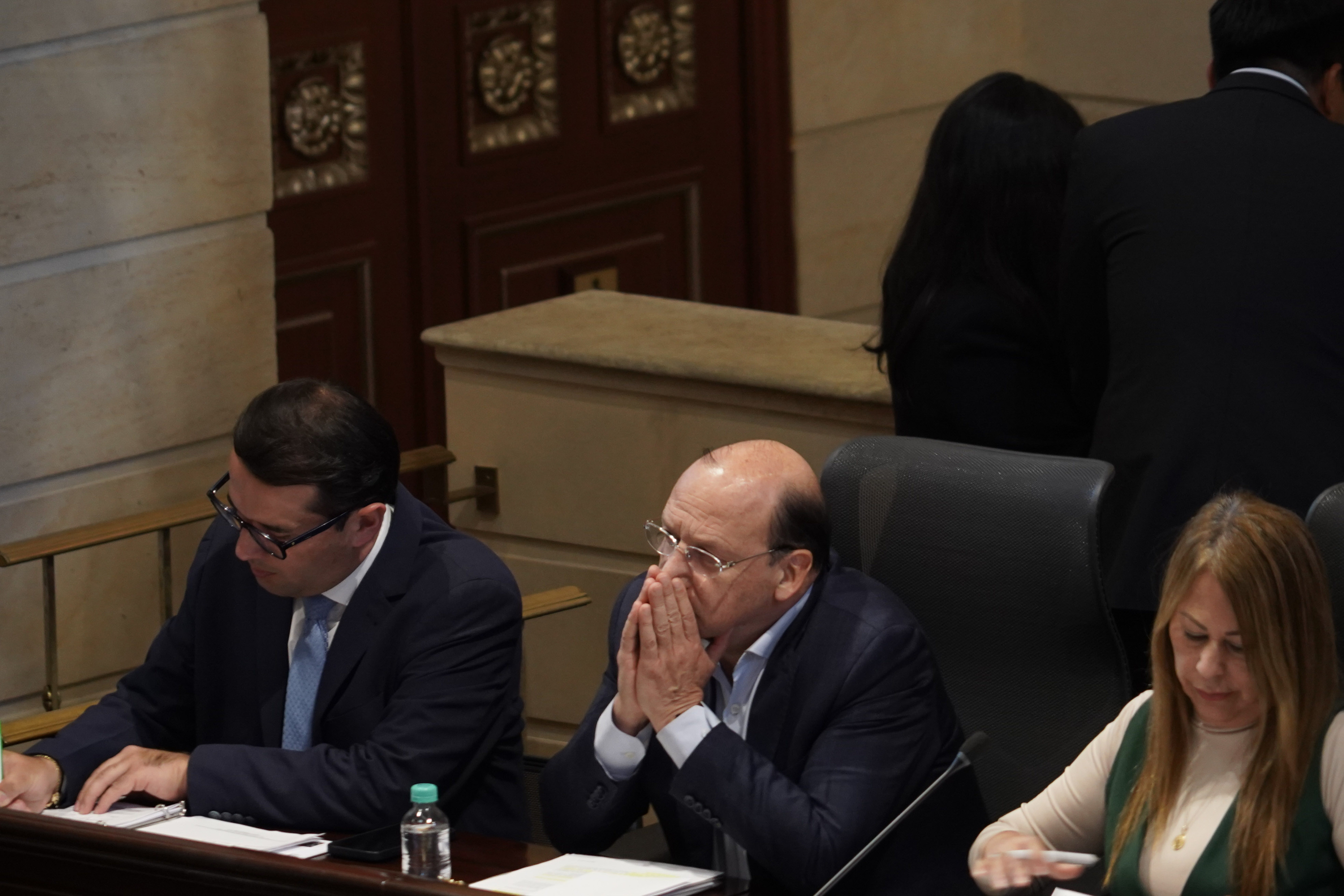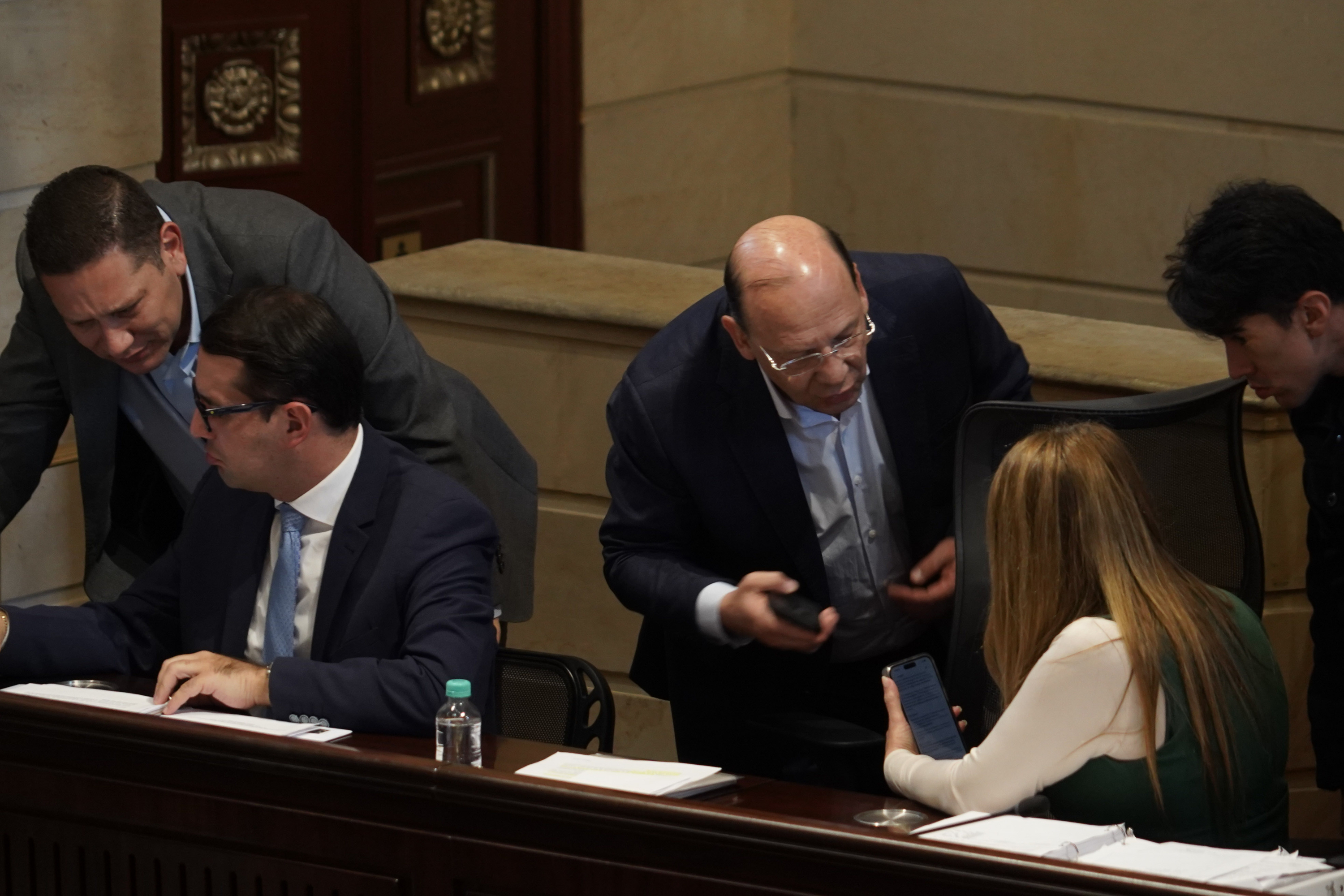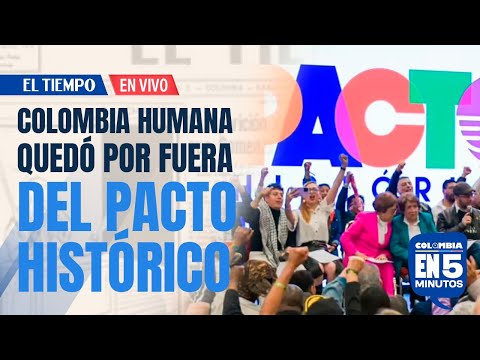Is there an environment to lower the 2026 budget and avoid issuing it by decree, as happened last year? This is how the debate in Congress is going.

Next Monday is the deadline for Congress's economic committees to vote on the budget, which was initially presented by Gustavo Petro's administration at 556.9 billion pesos. The government's proposal is underfunded by 26 billion pesos, which would mean that its approval would require a tax reform to cover the deficit.
This is unlikely to happen, as government opponents and independent sectors have already stated that they will not approve a tax reform for this government in the midst of an election season. They see it as a reward for an administration that has increased spending, used the fiscal rule's escape clause, and failed to meet revenue targets.

Finance Minister Germán Ávila presents the 2026 Budget to Congress. Photo: Mauricio Moreno. El Tiempo
In recent days, the proposal to lower the amount has gained traction. The opposition has said it's the only way to approve the budget. Furthermore, figures such as Senator Juan Felipe Lemos, the rapporteur and member of the U Party, have said it's the only way to proceed because they cannot allow the budget to be passed by decree again.
Speaking with EL TIEMPO a few days ago, he explained that while the government was denied a budget a year ago, they cannot repeat that possibility this time because the budget proposal includes powers for President Gustavo Petro to modify future budget periods. If this were the case, he asserted, it would jeopardize important infrastructure projects.
The proposal to lower the budget has gained an important ally in recent days, Representative Wilmer Castellanos, who is chairman of the Third Committee of the House and close to the government. This weekend, it was revealed that he had submitted a proposal to lower the budget. Initially, his proposal sought to lower the budget and eliminate the 26 billion pesos deficit from the proposed budget. A tax reform would then be processed, and a budget addition would be made with the resources obtained from this fiscal project.

Joint session of the Third and Fourth Economic Committees. Photo: MAURICIO MORENO
However, Gustavo Petro's government reportedly did not like the proposal, and now the representative has said he is seeking the possibility of reaching an agreement to lower the amount. "What we have asked the national government is a margin of maneuver so that the history of issuing the budget by decree does not repeat itself," Castellanos told the media. In that same statement, he assured that the national government would be open to dialogue.
Senators who met with the Minister of Finance yesterday afternoon assert that Finance Minister Germán Ávila, with his statements at the meeting, opened the door to considering a reduction in the funding requested for next year. This possibility will be explored in today's meeting between Ávila and the chairs of the economic committees.
However, there are sectors that consider the government's proposal for dialogue to be less than genuine. For example, Senator Angélica Lozano has questioned the government's position regarding the way it presented the budget. "This is a political strategy to say, 'They didn't let me, Congress denied it,' and it's an electoral campaign strategy for the Historic Pact slates in Congress," said Senator Angélica Lozano.

Joint Session of the Third and Fourth Economic Commissions Photo: MAURICIO MORENO
Other congressmen, such as Senator Jhon Jairo Roldán, have also expressed their doubts about the possibility of the government agreeing to change the amount. He explained that there are several proposals on the table: "There are proposals to reduce it by 40 billion; to reduce it to avoid the financing law, that is, 26 billion; to reduce it by about 16 billion and leave it in the financing law; and the Treasury Department, which is asking that the amount not be touched."
A growing demand Given so many proposals and no public announcement from the Gustavo Petro administration or his Finance Minister to negotiate a reduction in the amount, the initial sentiment suggests that the proposal will be rejected again and a decree will have to be issued. This scenario also has few supporters, as demonstrated by the recent interview with EL TIEMPO by Senate President Lidio García.
“I hope Congress approves the President's budget. It would send a good message of reassurance. But a budget that faithfully meets the needs of the Colombian people,” García said, adding, regarding the budget, “Proper dissemination of the bill could allow for agreements. But if they don't approve it, the President will have to do so by decree. But that wouldn't send a good message. Politics needs to turn the page every day. Let's move on from the election of the magistrate and seek to pass the budget that will allow the country to move forward,” he stated.
The proposal to reduce the amount has also resonated with unions, who have warned of the need to lower the amount and maintain a budget that is both balanced and responsible for the nation's finances. For example, Luis Fernando Mejía, executive director of Fedesarrollo, points out that the figure should have increased based on inflation in 2025.
“The 2026 budget bill, amounting to 557 trillion pesos, repeats the same mistakes as the previous year: One. Spending growth of 9 percent, which doubles the projected inflation for 2026 (4.5 percent). This increase is calculated compared to the current budget with a postponement decree, which amounts to 511 trillion pesos. Two. An increase in the primary deficit—the difference between non-interest spending and revenue—which would go from 1.4 percent to 2.0 percent of GDP, equivalent to 38.6 trillion pesos. Three. The absence of any effort to initiate a serious adjustment of public spending. Four. A tax reform with little political leeway in a pre-election year. The first substantive discussion Congress should have is the total budget amount, which should grow in line with expected inflation. In that case, it should not exceed 531 trillion pesos,” Mejía asserted.

#Colombiain5minutes: CNE approved the merger of the Historic Pact Photo:
Juan Sebastian Lombo Delgado
eltiempo





